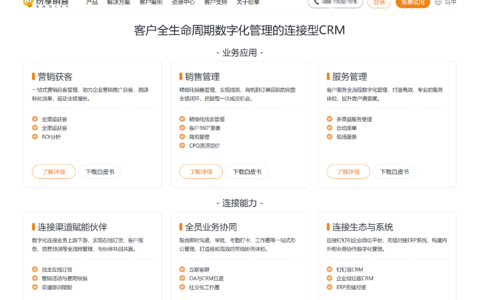
私营车辆管理所管的项目主要包括:车辆购买、保养维修、燃油管理、保险理赔、车辆处置等。 在这些项目中,车辆购买是最基本的一项,涉及到选择合适的车型、谈判购车价格、办理购车手续等环节。在车辆购买后,还需要定期的保养维修,以保证车辆的正常运行。此外,燃油管理是车辆运营成本的重要组成部分,需要对车辆的燃油消耗进行合理控制。保险理赔则是在车辆发生事故后,通过保险公司对损失进行赔偿的过程。最后,车辆的处置也是车辆管理的重要环节,包括车辆的更换、销售、报废等。
I. VEHICLE PURCHASE
Vehicle purchase is the most basic project in private vehicle management. It involves selecting the appropriate vehicle type, negotiating the purchase price, and handling the purchase procedures. The goal of vehicle management in this project is to ensure that the company purchases the most cost-effective vehicles according to its own needs and budget.
II. MAINTENANCE AND REPAIR
Regular maintenance and repair are necessary to ensure the normal operation of vehicles. Vehicle management needs to arrange regular maintenance and deal with unexpected repairs promptly. In order to reduce costs, it is necessary to choose a reliable and affordable maintenance and repair service.
III. FUEL MANAGEMENT
Fuel management is an important part of the operating cost of vehicles. Vehicle management needs to control the fuel consumption of vehicles reasonably. This involves monitoring and analyzing fuel consumption, promoting fuel-efficient driving habits, and choosing fuel-efficient vehicles.
IV. INSURANCE AND CLAIMS
Insurance and claims are related to the financial protection of vehicles. When a vehicle accident occurs, vehicle management needs to handle the claims process with the insurance company to compensate for the loss. This requires a good understanding of insurance policies and claims procedures.
V. VEHICLE DISPOSAL
Vehicle disposal is the final stage of vehicle management, including vehicle replacement, sale, and scrap. Vehicle management needs to make decisions based on the condition of the vehicle and the company’s needs. The goal is to maximize the value of the vehicle at the end of its life cycle.
In summary, private vehicle management involves a wide range of projects, each of which requires professional knowledge and skills. Through effective vehicle management, companies can reduce costs, improve efficiency, and ensure the smooth operation of vehicles.
相关问答FAQs:
1. 私营车辆管理所管辖的项目有哪些?
私营车辆管理所是负责管理和监督私营车辆运营的机构。它管辖的项目主要包括以下几个方面:
- 车辆注册和登记:私营车辆管理所负责私营车辆的注册和登记工作,包括核发车辆登记证书、颁发车牌号码等。
- 车辆运营许可:私营车辆管理所审核和颁发私营车辆的运营许可证,确保私营车辆符合相关法规和标准,具备安全运营的条件。
- 车辆安全检测:私营车辆管理所负责对私营车辆进行定期的安全检测,包括车辆的机械状况、制动系统、灯光设备等的检测,以确保车辆的安全性能。
- 运营监管和执法:私营车辆管理所对私营车辆的运营进行监管,包括对违规行为的处罚和处置,确保私营车辆运营的合法性和规范性。
- 行业管理和服务:私营车辆管理所还负责私营车辆行业的管理和服务工作,包括对私营车辆从业人员的培训和考核、对行业发展的规划和指导等。
2. 私营车辆管理所对私营车辆的安全要求是什么?
私营车辆管理所对私营车辆的安全要求主要包括以下几个方面:
- 机械状况:私营车辆管理所要求私营车辆的发动机、变速器、制动系统等机械设备必须正常运行,不存在严重故障或缺陷。
- 灯光设备:私营车辆管理所要求私营车辆的前照灯、后尾灯、转向灯等灯光设备必须完好且正常工作,确保行车时的能见度和安全性。
- 安全设备:私营车辆管理所要求私营车辆必须配备安全设备,如安全带、防抱死制动系统(ABS)、气囊等,以提供乘客和驾驶员的保护。
- 车身结构:私营车辆管理所要求私营车辆的车身结构必须稳固、坚固,能够承受正常行车和碰撞带来的压力。
- 运营规范:私营车辆管理所要求私营车辆的运营必须符合相关法规和标准,如不超载、不超速、不疲劳驾驶等,以确保乘客和驾驶员的安全。
3. 私营车辆管理所如何监管私营车辆的运营?
私营车辆管理所通过多种方式来监管私营车辆的运营,以确保其合法性和规范性。
- 许可证审核:私营车辆管理所在颁发运营许可证之前对申请的私营车辆进行审核,包括车辆的技术状况、车辆所有者的资质等。只有通过审核的车辆才能获得运营许可证。
- 定期检测:私营车辆管理所要求私营车辆定期进行安全检测,以确保车辆的安全性能和合规性。如发现问题,私营车辆管理所会要求车主及时整改。
- 执法检查:私营车辆管理所会不定期对私营车辆进行执法检查,检查车辆是否符合相关法规和标准,如是否超载、超速、疲劳驾驶等。对违规行为,私营车辆管理所会给予相应的处罚。
- 投诉受理:私营车辆管理所接受乘客和其他相关人士的投诉举报,如对私营车辆的服务质量、安全问题等进行调查和处理,保障乘客的权益和安全。
总之,私营车辆管理所的工作是为了确保私营车辆的安全运营和行业的规范发展,保障乘客和驾驶员的安全和权益。
文章标题:私营车辆管理所管哪些项目,发布者:飞飞,转载请注明出处:https://worktile.com/kb/p/3055154

 微信扫一扫
微信扫一扫  支付宝扫一扫
支付宝扫一扫 



